2024
advisory services
innovation support services
knowledge flows
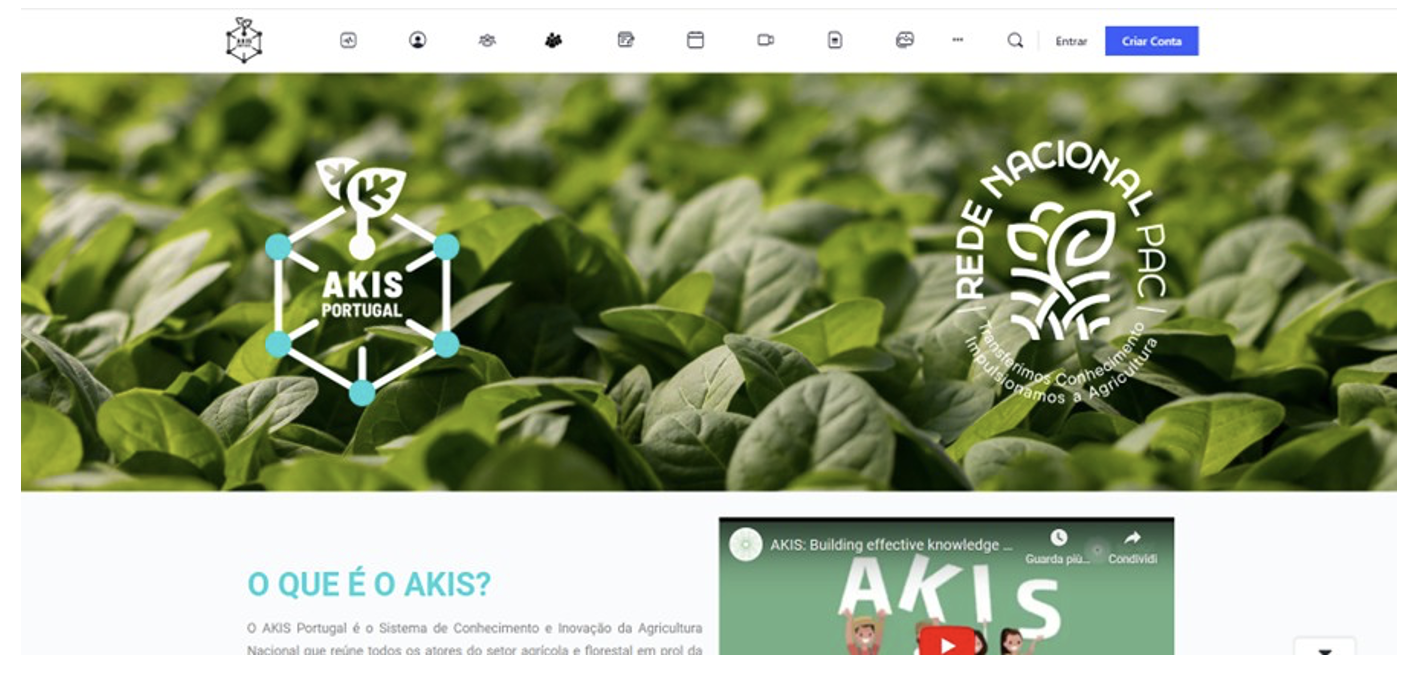
The need for a centralized point of reference for AKIS (Agricultural Knowledge and Innovation System) actors is crucial for improving the flow of knowledge within the agricultural sector. Currently, in Portugal, information is often scattered across various organizations, research bodies, advisory services, and educational institutions, making it challenging for farmers, advisors, and other stakeholders to access the relevant knowledge at the right time. To this aspect the same European Commission (EC) also recommended, for the purpose of the CAP Strategic Plan (SP), investments in coordinating and increasing knowledge flows (especially between farmers, researchers, advisors, education and the CAP network) to strengthen the impact of EU and national funding for research and innovation.
In fact, establishing a central knoweldge platform can help streamline fragmented information, ensuring that innovations, best practices, and research findings are easily accessible to those who need them.
Digital platforms offer an effective means for knowledge sharing by consolidating research data, innovation initiatives, skill-building resources, and networking opportunities.
Moreover, they have a great potential to make new agricultural methods and technologies more accessible to the wider public and to boost innovation scaling across the agricultural sector.
Often these platforms are established within the scope of the CAP networks to facilitate communication and outreach, creating centralized hubs where farmers, researchers, and advisors can access valuable information and practical solutions. With features like databases, discussion forums, and networking tools, they promote real-time knowledge exchange and cross-sector collaboration.
The AKIS Platform was launched in later November 2023 by the managing authority of the Rural Development Program 2014-22, together with the national CAP Network and under the framework of the Portugal 2030 strategy. This is a digital platform that integrates and centralizes knowledge and innovation in place within the agricultural sector, through facilitating better coordination among various system actors, such as farmers, researchers, advisors, and policymakers. Its primary aim is to address the fragmentation of information across regional and national systems, promoting efficient and accessible data sharing for all stakeholders.
In fact, the platform enhances the interoperability of diverse information systems by consolidating technological innovations, best practices, and ongoing research projects into a single interface. Designed to ensure that all users can access reliable and up-to-date information, it supports informed decision-making and the adoption of more sustainable and innovative practices.
In addition, the platform includes capacity-building tools and collaborative networks that enable users to participate in webinars, access documents, and connect with other professionals in the sector. This interactive component not only promotes the dissemination of knowledge but also encourages innovation through the exchange of experiences and practical solutions.
The digitization of knowledge and the integration of a collaborative system will increase the efficiency of information dissemination and empower actors in the Portuguese agricultural sector to adopt more sustainable, innovative, and resilient practices.
Box 1: Portugal 2030 Strategy
Portugal2030 is a strategic framework aimed at guiding Portugal's economic and social development from 2021 to 2027, in alignment with the European Union's multi-annual financial framework. It focuses on leveraging EU funds to promote sustainable growth, innovation, and social cohesion in the country based on key Programmes, organised by topics and regions. Key priorities include enhancing competitiveness, boosting digital and green transitions, improving infrastructure, and addressing social inequalities, with the ultimate goal of fostering a resilient and inclusive economy that meets EU climate and digital goals.
For further info please visit https://portugal2030.pt/.
The Portuguese AKIS Platform offers several key features designed to foster collaboration and knowledge sharing:
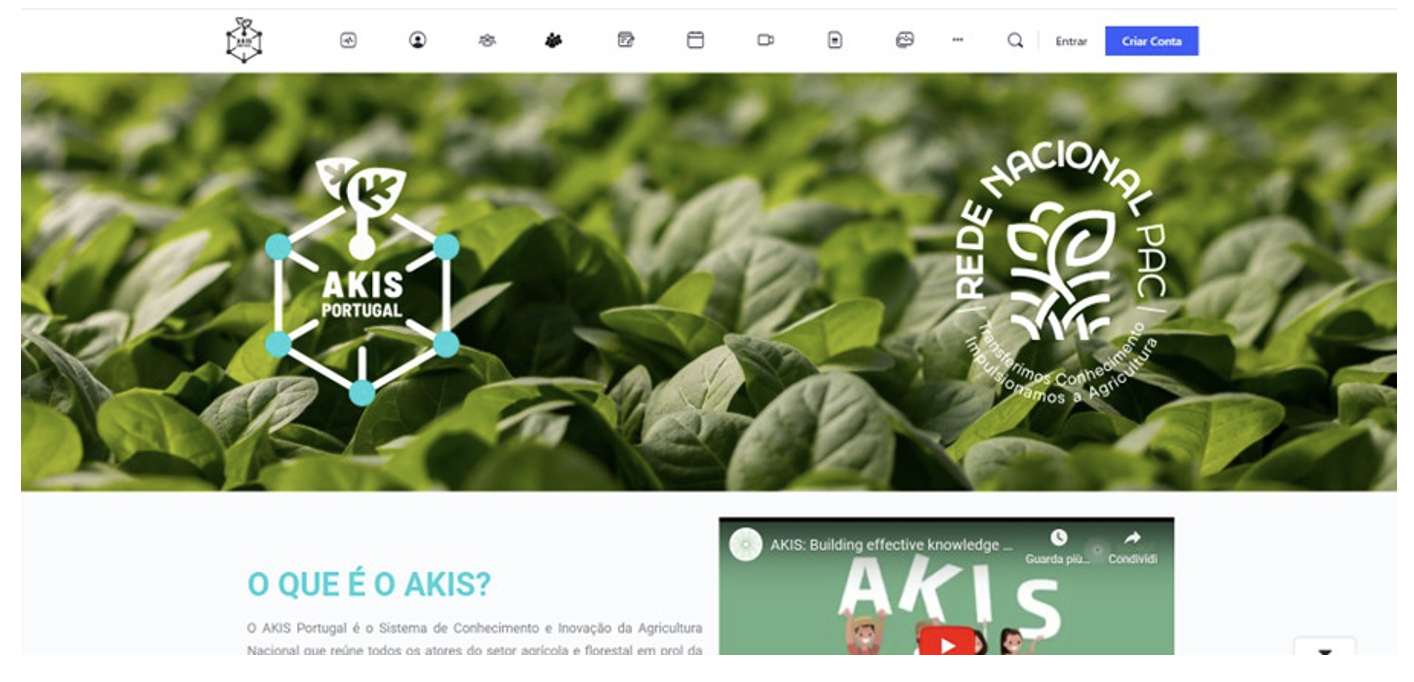 Figure 1: Some sections of the AKIS platform
Figure 1: Some sections of the AKIS platform
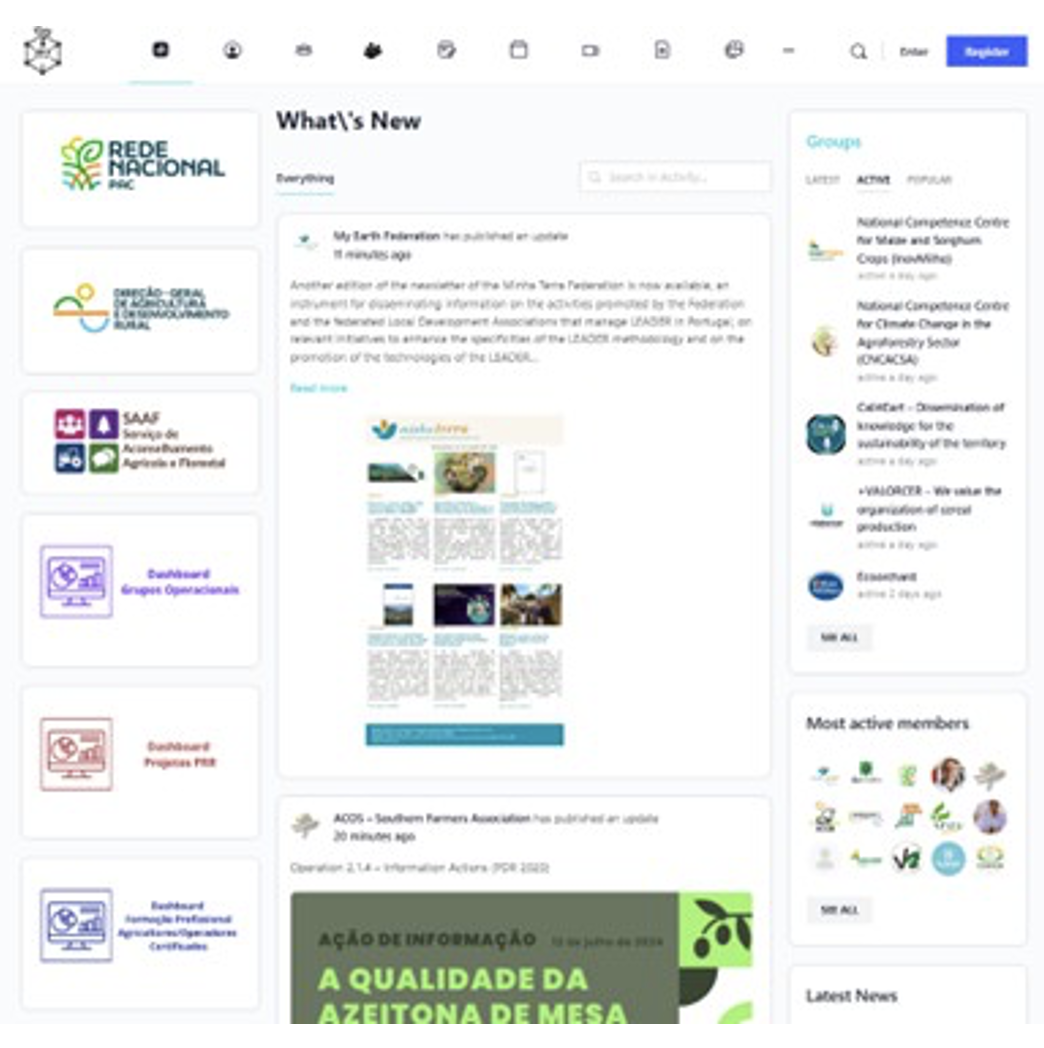
Since its creation the AKIS digital platform has an increasing number of members and groups.
With reference to the membership, there is strong involvement from associations, cooperatives, and technical advisors, and increased engagement from farmers and students, and other key stakeholders in agricultural innovation systems.
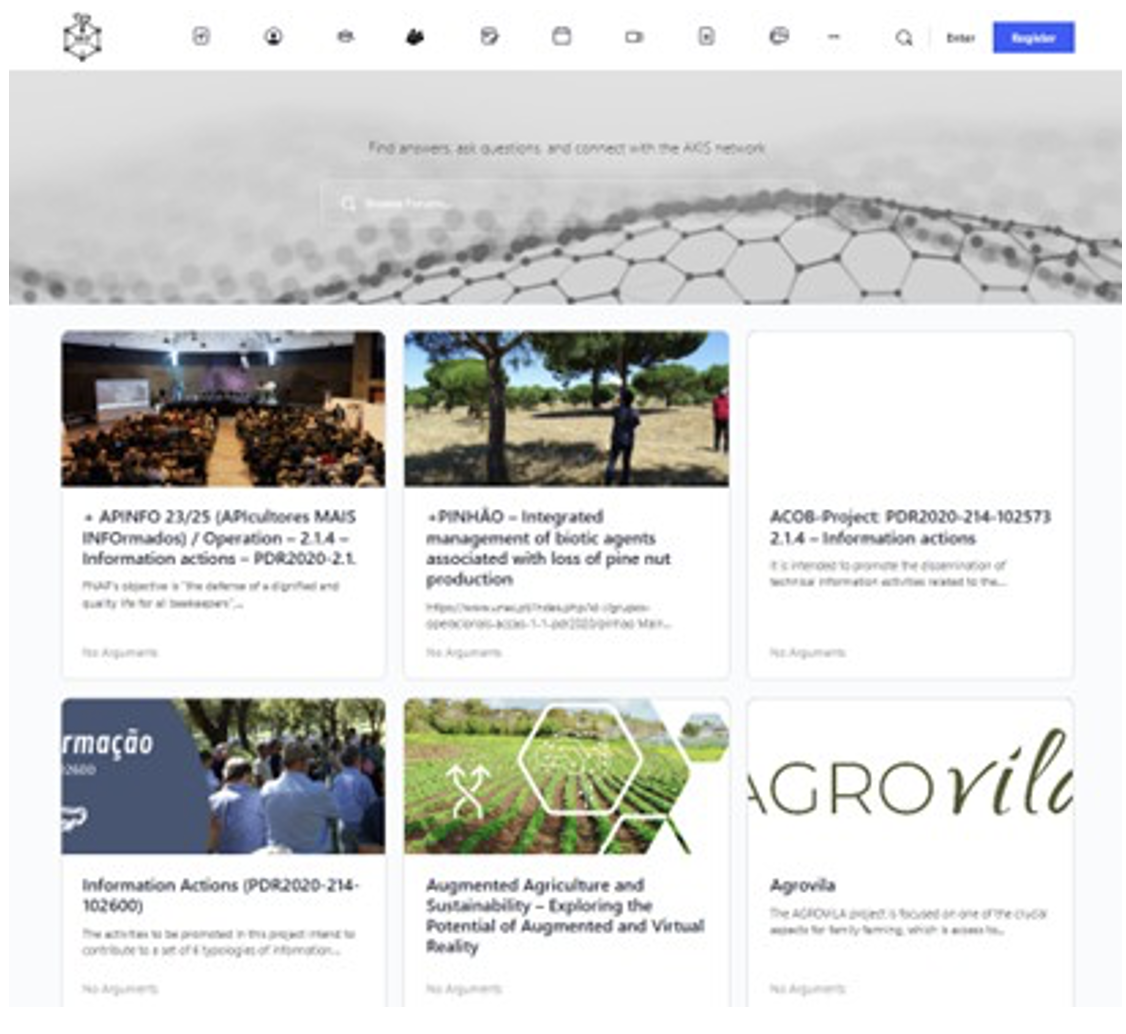
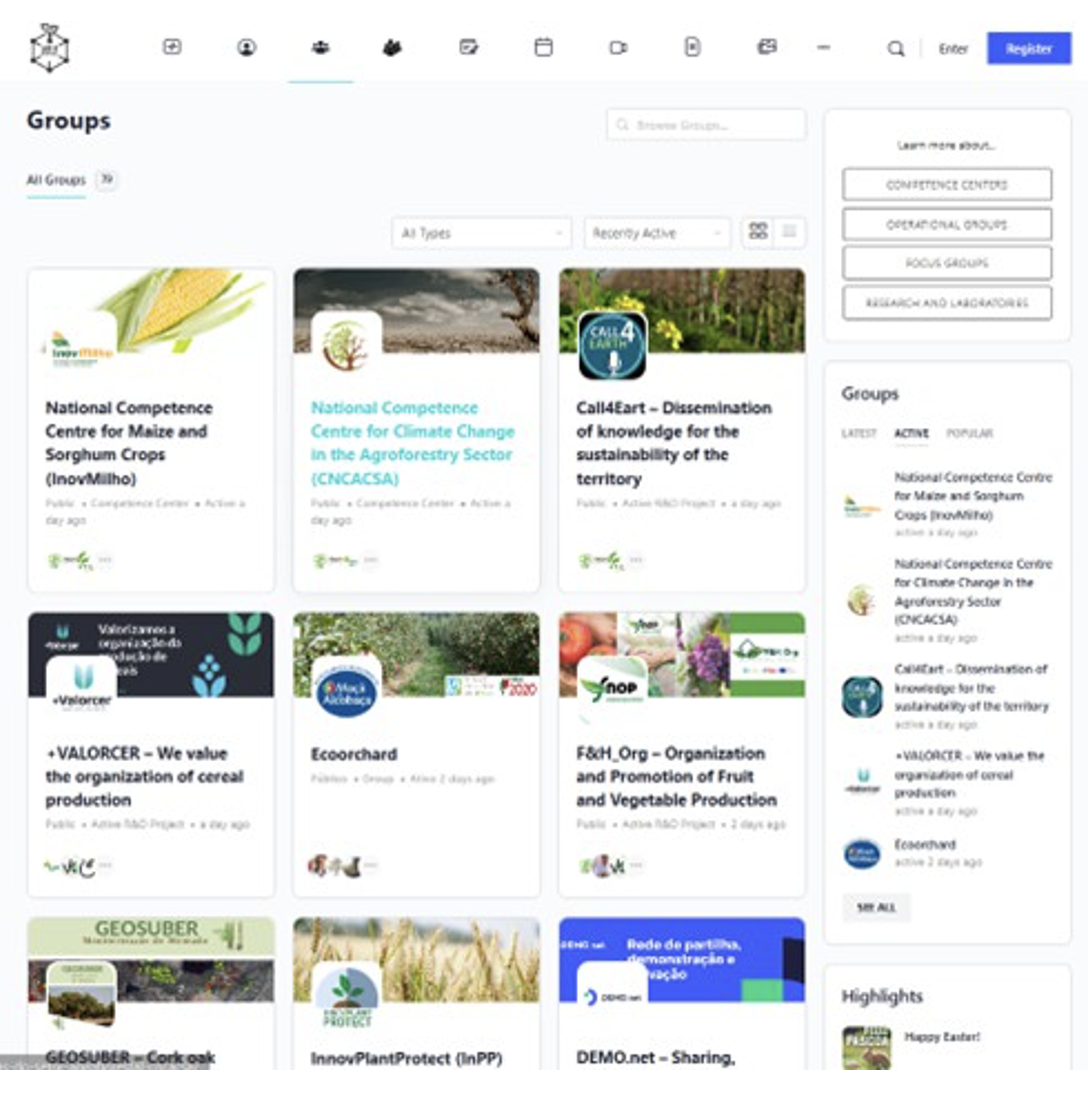
Figure 2: Members of the AKIS Digital platform by categories
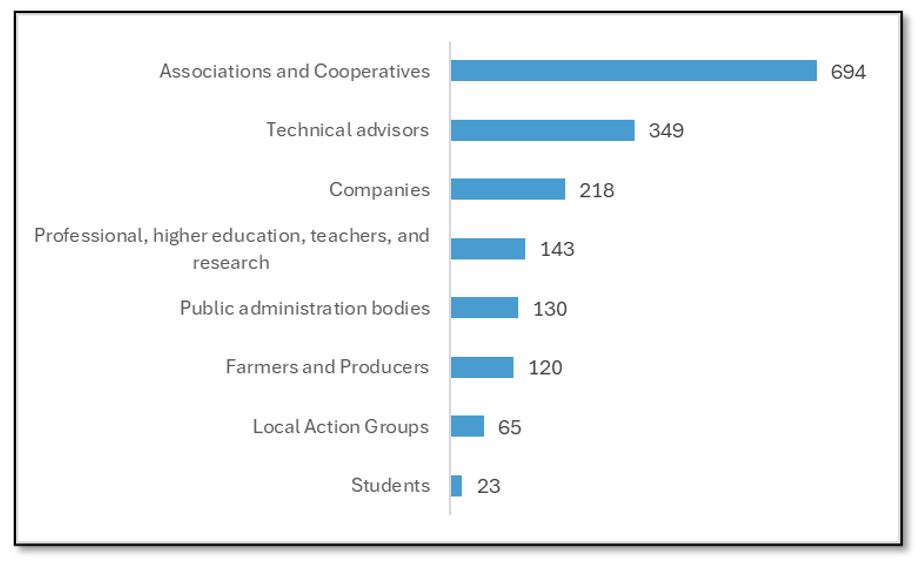
Source: Elaboration on Consulai data - July 2024
Overall, there is a strong focus on Competence Centers and R&D initiatives, while smaller, more specialized groups like Focus Groups and PRR-related projects are less prominent within the AKIS framework. This highlights a potential area for growth and more targeted inclusion of niche and emerging agricultural themes.
Replicating this platform would require a well-structured approach to integrating various stakeholders from agriculture, research, and policy sectors. Key considerations include:
The Portuguese AKIS Platform offers numerous benefits that enhance collaboration and knowledge dissemination across the agricultural sector such as: